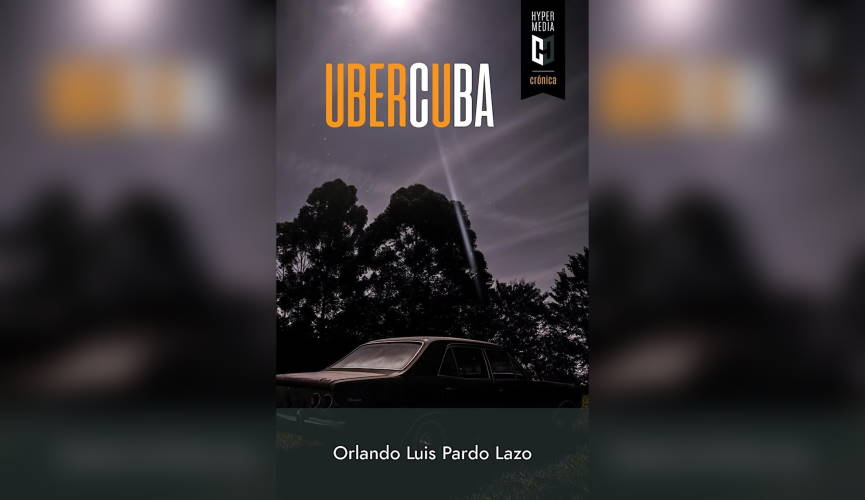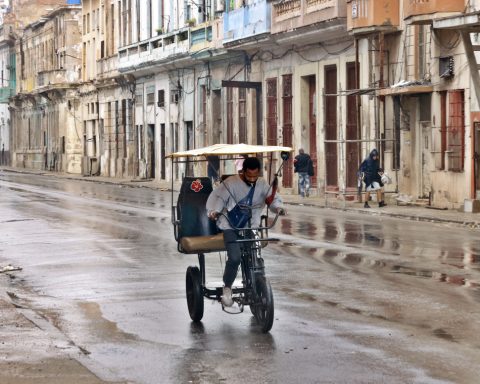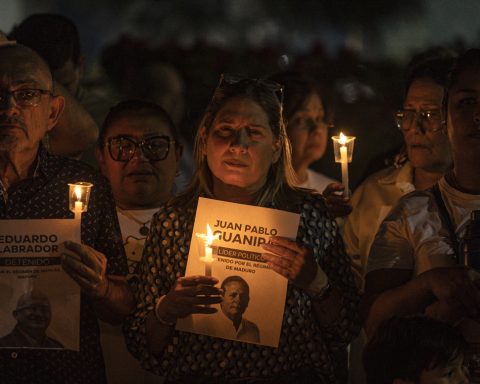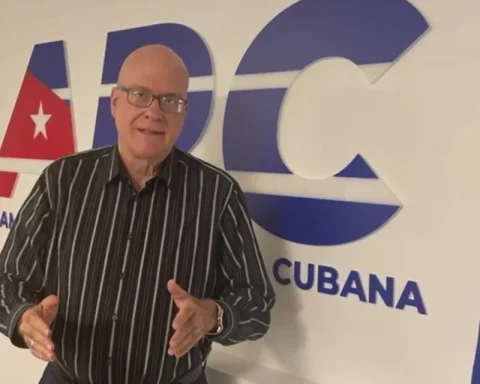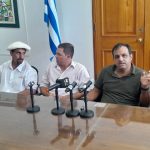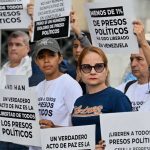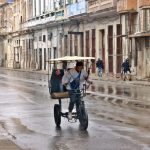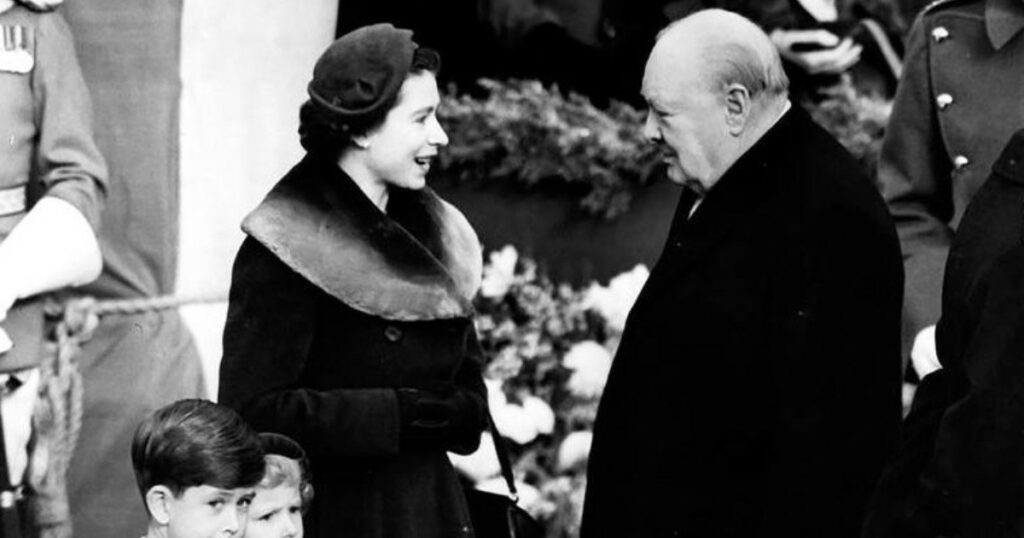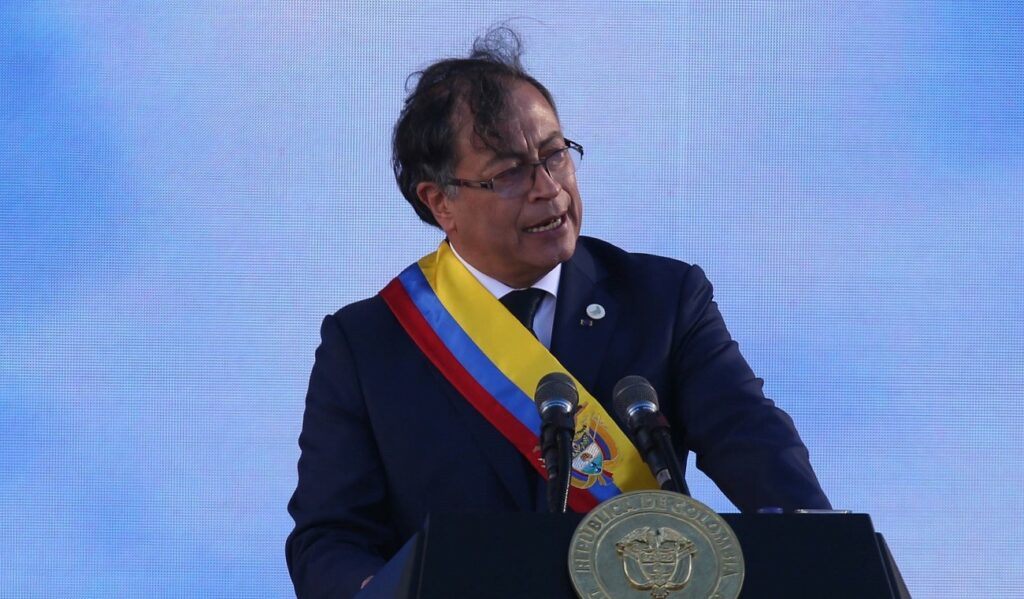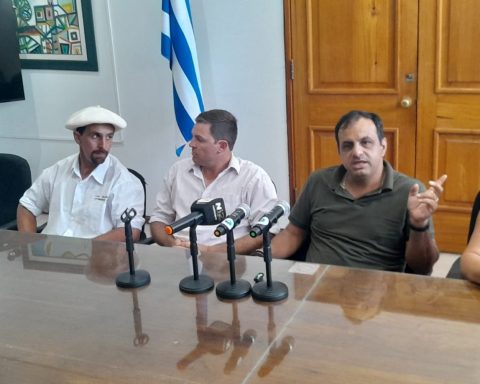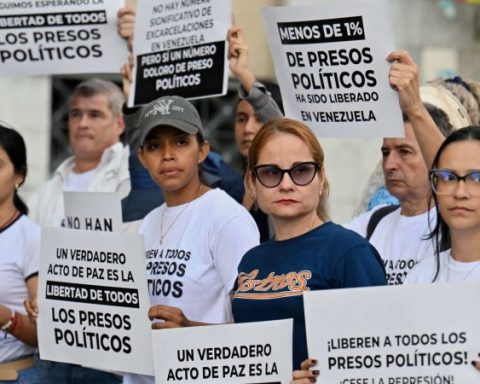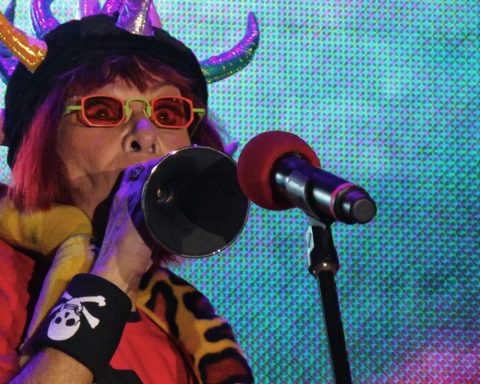From car to car… foreign carrion
MIAMI, United States. — In this trip made of trips, we plumb the abyss of Cuba in the spiritual geography of an author who wants to recover his country and at the same time find himself through what he calls a “story of the Cuban Revolution told chapter by chapter by taxi drivers and Uber passengers.
Despite the conversations that it includes, the book seems like a fragmentary monologue and, nevertheless, the subterranean and obsessive dialogue that it forces us to carry out greatly increases the flow of the text. Orlando Luis Pardo Lazo, so that we discuss with him through ourselves about things that we might not want to talk about. The paranoid mirror is no longer just a rear view mirror.
When, in the introduction, Ahmel Echevarría compares the telescope of memories of underdevelopment with rear view mirror Uber Cuba, this reflecting car could be a car(reflection). “My most autobiographical book”, says the author in conversation with a youtuber. The biographies that follow each other from car to car make a car(biography). “As it should be”, the car(r) would perhaps say.
And it is curious how monologue and dialogue, history and autobiography, howl and lament, everything goes in an anxious search for communion (“Thinking of me and you and all of you, whether we will ever be all of us”). It doesn’t matter if we can classify these texts as chronicles or as fictions: everything comes together in a literary Eucharist.
And it is that OLPL manages to build OLPL —a character that creates an author—, and the OLPL writer joins with his OLPL creature in a case of identification of the obsessed that rarely achieves such intensity in our literature. Pure communion.
A tired driver from the head to the gallows
This is how the hybrid of reality and fiction that is OLPL portrays himself at one point in the book: “ex-Cuban ex-writer (…) very exhausted from being a sad witness without contemporaries. A tired driver from the head to the gallows. So tired that he no longer wants to define anything, much less a country, among so much Creole totalitarianism.
However, the single word Cuba is enough for him to fall into a trance or to explode, without measure, without fear of ridicule, without shame or mercy, speaking of “a Cubanness that never existed, beyond some other scriptural scam that occurs ( and it occurs to me) inside an Uber taxi.” A Marx Brothers cabin taxi, of course.
He could seem like a Knight of Paris 2.0 Uberunleashed and Uberbocón… Well yes, the town madman who goes from town to town talking about his town, passing a hundred towns in his web taxi. This José María López Lledín of the 21st century does not go down the street distributing pieces of paper with written phrases, but rather giving verbal fire from network to network, from city to city.
Like the devilish spider of social media, OLPL weaves its social web of words in a circular thread around an empty, emptied center, which is Cuba, to hunt down the hot, kicking, swiping prey of other words. Ah, the conversation that is not sister, but human. Pure and hard communion.
Piling up all his clichés, all his delusions, all his personal coordinates in a single book, OLPL makes an offering of himself, saying, rediding himself, reversing himself, contradicting himself, dying in the word: direct verbal agony, but endless agony that asks for more Eucharist what an extreme unction
Orlando Luis Pardo talks to the reader because that is his most authentic and least desperate way of talking to himself. Prey to communicative compulsion, condemned by himself to say and listen, he is caught up in a conversation beyond social networks. Because OLPL, before and after them, is an insistent animal of the networked society, a collective character, a seismic talk show host and a conversationalist who can’t stop talking and listening and replying and counter-replicating. But communion, as it should be.
I am Orlando Luis Pardo and I will have to tell everything…
And taking communion testimonially, of course, because we are facing a testimony that wants the testimony of the other. Invective, seduction, sentimental nudity, shrieking, begging, everything is part of that invocation of the other without which OLPL is in continuous restlessness and in perpetual insomnia of mirages.
The worst thing is the empty echo, the hollow auditorium, and for this reason, among so many, the play on words that is repeated the most in Uber Cuba uses the terms “hollow” and “echo”. Eloquent.
And that is why it is a heroic confession: testimony of the hero who assures that he has seen things that nobody would believe, while we can imagine a fantastic talking pet that interrupts him from the shoulder, yelling insults and importunities. Fuck them if they don’t believe them. And well, as the piratesco owner of him would say.
The hero is a guy who writes, among other reasons, seeking to dynamite the death rattle of written dialogue, and for this he uses unbridled orality, like a biochemical griot and a photographer who explores the magnetic dimensions of the word.
But the one who dissolves his tears in the rain is not the New Man, but the aging new homunculus, and what mixes with his tears is the pathetic drizzle of time. Nothing more and nothing less than a man crying in the desert, crazy with thirst and mirages of fire that prevent him from sleeping among the detritus of Castroism.
He would like the conversation to reach a present vitality rather than a past virtuality, and for this reason he needs the living and sanguine word, without the extortion of inflated ink words such as Revolution, Socialism or Man.
And we have to talk, because perhaps there is one last chance to catch signs behind the phrases, the shouts, the silences, the propaganda, the alphabetization of the fable. After the homunculus that was not, there is the story of the man that was, the testimony that each one must defend with the heroism of a lunatic. As it should be.
That fallen aura of my personal Cuban Revolution
If expansiveness is the way of the shy, the nerves of the hypersensitive and sentimental OLPL are verbal. This romantic fundamentalist of the 21st century puts into the bathyscaphe whatever bug he finds in his varied chronicle of the national ravine… And incidentally he writes “Long Live the Cuban Revolution” in 57 languages besides English —but not Spanish.
The characters and ghosts that OLPL puts in its Marx Brothers taxi are as unthinkable as Sacha Baron Cohen and Arnaldo Ochoa, Donald Trump and Jeffrey Epstein, Nivaria Tejera and Fina García Marruz, or as dissimilar as Chucho Valdés, Rosa María Payá, Carlos Alberto Montaner, Mónica Krause, Cardinal Jaime Ortega, Ernesto Cardenal, Santiago Feliú, José Daniel Ferrer and other even more surprising travelers.
But let us remember what the author himself notes. Referring to an anecdote, he says that it, “like all the ones in this book, is strictly rigged, because it is the pure truth.” Building his verbal world, Orlando Luis Pardo, as a writer who knows his stuff, places us in the territory that he himself is creating and all we see through the window is a landscape painted by him, which is more of a countryman from the country of cursed poets than from Lawton or Saint Louis. As it should be.
And he also guides us with his personal map, much larger than the invented territory.
All the trips of the trip are illuminated by the black aura of the Cuban Revolution. Thus, with capital letters and with huge sacrificial pyramid stones. With that phosphorescence of dreams fallen a hundred curves ago, which still illuminate real life with a sad light, as a reminder of how easily a nightmare becomes everyday life.
There is a moment in exile where exile becomes consistently true
This is the other Cuban half, exile, that island that flies everywhere and runs aground on the most remote shores. The shadow that becomes a body. Like OLPL itself written by OLPL.
Anyone falls into the temptation of classifying OLPL, even when OLPL uses everything to say what it wants, because everything serves to sink its teeth, and better if it has thorns, if it is red hot and others prefer not to look at it.
Also autofiction? Sure, and even fiction by car at breakneck speed. The point is to turn everything into literature, because everything fits into literature, even what is outside of literature and even counter-literature.
We read in the book: “This shit of the Uber Cuba it doesn’t even seem to be part of Cuban literature. I mean, it doesn’t seem to be literature.”
Let us point out that the matter of his work is not confusing or unapproachable, since it is not an ordinary narrative material, but rather it is composed mainly of the most immaterial, fleeting and fluid thing that exists: the passions. Empty of passion, his literature loses its figure.
But neither is it an inventory of exclamatory emotions and moods, but rather an incomparable object: the account of someone who lives not only in political and geographical exile, but also in exile from himself: a circular journey of the poet who makes himself the other who must recover, since the poet is an exile in search of his double who submerges himself in a telescopic and microscopic mirror at the same time.
And, although we do not know how long that nomadic climax will last, that cry in capital letters, the important thing is that, while it lasts, it confronts us with the image of our grayness, our conformism and our boredom. As it should be.
Because we too should have trouble sleeping, like OLPL himself, who nevertheless sometimes manages to fall asleep but: “When he woke up, the Uber taxi was still there”.
OPINION ARTICLE
The opinions expressed in this article are the sole responsibility of the issuer and do not necessarily represent the opinion of CubaNet.
Receive information from CubaNet on your cell phone through WhatsApp. Send us a message with the word “CUBA” on the phone +525545038831, You can also subscribe to our electronic newsletter by giving click here.
